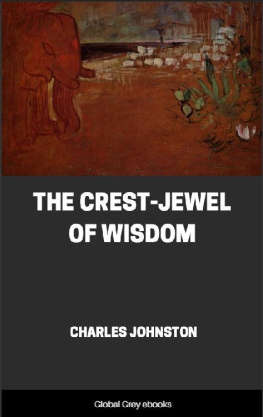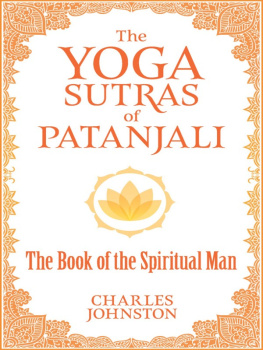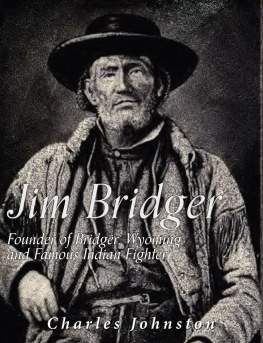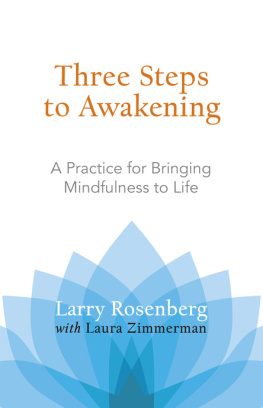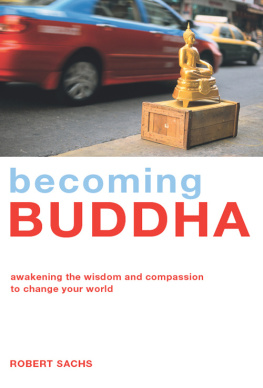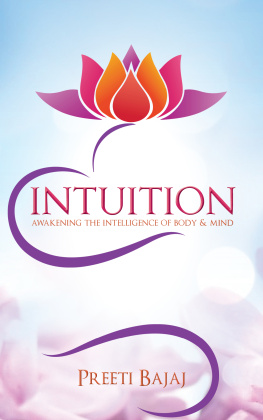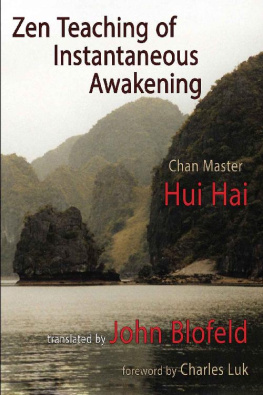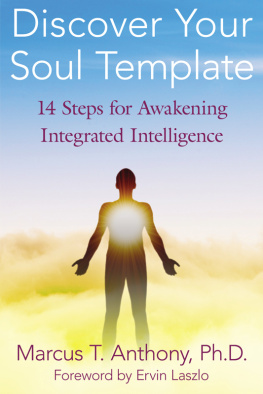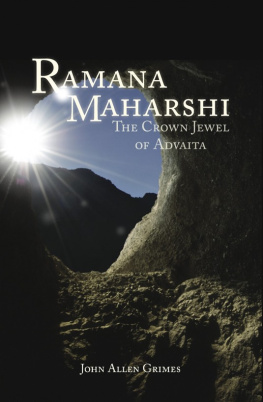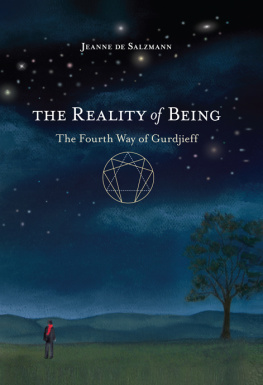Charles Johnston - The Crest-Jewel of Wisdom (Hinduism)
Here you can read online Charles Johnston - The Crest-Jewel of Wisdom (Hinduism) full text of the book (entire story) in english for free. Download pdf and epub, get meaning, cover and reviews about this ebook. year: 2018, publisher: Global Grey ebooks, genre: Religion. Description of the work, (preface) as well as reviews are available. Best literature library LitArk.com created for fans of good reading and offers a wide selection of genres:
Romance novel
Science fiction
Adventure
Detective
Science
History
Home and family
Prose
Art
Politics
Computer
Non-fiction
Religion
Business
Children
Humor
Choose a favorite category and find really read worthwhile books. Enjoy immersion in the world of imagination, feel the emotions of the characters or learn something new for yourself, make an fascinating discovery.
- Book:The Crest-Jewel of Wisdom (Hinduism)
- Author:
- Publisher:Global Grey ebooks
- Genre:
- Year:2018
- Rating:3 / 5
- Favourites:Add to favourites
- Your mark:
- 60
- 1
- 2
- 3
- 4
- 5
The Crest-Jewel of Wisdom (Hinduism): summary, description and annotation
We offer to read an annotation, description, summary or preface (depends on what the author of the book "The Crest-Jewel of Wisdom (Hinduism)" wrote himself). If you haven't found the necessary information about the book — write in the comments, we will try to find it.
The Crest-Jewel of Wisdom (Hinduism) — read online for free the complete book (whole text) full work
Below is the text of the book, divided by pages. System saving the place of the last page read, allows you to conveniently read the book "The Crest-Jewel of Wisdom (Hinduism)" online for free, without having to search again every time where you left off. Put a bookmark, and you can go to the page where you finished reading at any time.
Font size:
Interval:
Bookmark:
THE CREST-JEWEL OF WISDOM
AND OTHER WRITINGS OF ANKARCHRYA
TRANSLATIONS AND COMMENTARIES BY
CHARLES JOHNSTON
1946
The Crest-Jewel of Wisdom by Charles Johnston.
This edition was created and published by Global Grey
GlobalGrey 2018

globalgreyebooks.com
THIS little volume with its foundation-stones of Truth is an effort to further the second object of the Theosophical Society as it was originally expressed by H. P. Blavatsky in The Key to Theosophy:
To promote the study of Aryan and other Scriptures, of the World's religion and sciences, and to vindicate the importance of old Asiatic literature, namely, of the Brahmanical, Buddhist, and Zoroastrian philosophies.
The translations herein are reprints from the Oriental Department Papers published by William Quan Judge in 1894, 1895, and 1896, as well as from Judge's Magazine, The Path. In introducing Charles Johnston, then a member of the Theosophical Society, as the translator of the Sanskrit works to be produced in his Oriental Papers, judge writes:
Of his qualifications there is no doubt, as he has had experience in this field, has also for some time been teaching Sanskrit, and brings to the work a sincere sympathy with Indian thought as well as devotion to the Society which will without question make the matter furnished of value as well as of interest.
In ankarchrya (the blessed teacher) we have an example of the statement that "Masters are living facts." Mankind needs such assurance these days, and needs not only the inspiration of the story of a man who has lived divinely, but also his kindly and strengthening words of wisdom. What greater gift could the Hindu sage have left us than that of a collection of soul-stirring thoughts?
For those who, with hearts fervent with compassion, seek the holy path that brings to birth a 'sage of boundless vision,' ankarchrya's Crest-Jewel of Wisdom will be a practical and inspiring guide to life. Its teachings, the shared realizations of an enlightened god-man, tell us the laws by which we may 'untie the bonds of unwisdom,' and thus, evermore free, with minds calm and pellucid and hearts purified of reward-desiring actions, come to know and partake of the majestic power, light, and universal kinship of the Divine within us, our birthright as humans, and our passport to grander attainments in vaster spheres of consciousness.
Just as the sun with its splendor and its glories greets us every morning when we awake and silently through the day nourishes us in all parts of our being, and later as it sets at night, leaves a glow of rich color suggesting a spiritual mystery to be grasped somewhere, somehow--maybe in the morn's returning light--so the challenging message of ankarchrya's jewel-thoughts braces the spirits of world-weary ones as they turn to its radiant wisdom. They become illumined by the divine fire permeating its words, and as they turn from the study of its verses enriched for another of life's experiences, the glow of the gleaned awakenings will become a haunting memory leading them back to its precepts for another sunrise and sunset of the spirit.
JUDITH TYBERG
Theosophical University
March, 1946
THE Upanishads, Buddha, and ankara: these are the three great lights of Indian wisdom. The Upanishads far away in the golden age; in the bright dawn that has faded so many ages ago. Buddha, the Awakened One, who, catching in his clear spirit the glow of that early dawn, sought to reflect it in the hearts of all men, of whatever race, of whatever nation; sought to break down the barriers of caste and priestly privilege; to leave each man alone with the Universe, with no mediator between. But scattering abroad the rays of wisdom, Buddha found that the genius of each man, of each race, could only reflect one little beam; and that in thus making the light the property of all men, the purity and completeness of the light might be impaired.
Then followed ankaracharya--ankara the Teacher--who set himself to the preservation of the light; to burnishing the casket that held the lamp of wisdom. Busying himself chiefly with India, he saw that the light must be preserved, as far as its completeness and perfection were concerned, within the Brahman order, where the advantages of heredity, of ages of high ideals and rigid discipline could best secure the purity of the light; could best supply a body of men, fitted by character and training to master the high knowledge, to sustain the moral effort that made the glory of India's Golden Age.
This task of fitting the Brahman order to carry the torch of wisdom was undertaken by ankara the Teacher in three ways. First, by commenting on the Great Upanishads and the Bhagavad Gt, he rendered the knowledge of the Golden Age into the thought and language of the Brahmans of his day. Second, by writing a series of preparatory works, of catechisms and manuals, he made smooth the path of those who would take the first steps on the path of wisdom. Thirdly, by a system of reform and discipline within the Brahman order, he did all that sound practice could do to second clear precept.
The system formed by ankara within the Brahman order largely continues at the present day. The radiant points of this system are the monasteries founded by the Teacher, where a succession of teachers, each initiated by his predecessor, carry on the spiritual tradition of the great ankara unbroken.
Of commentaries on the Upanishads and the Bhagavad Gt, many, perhaps, were written in a gradual series leading up from the simple truths to the more profound mysteries; so that, with one after another of these treatises in hand, the learner was gradually led to the heart of the mystery which lies "like a germ of generation" well concealed in these matchless theosophic documents. These commentaries were followed by others, the work of ankara's pupils; and though these works of explanation are very numerous, all those that are published seem to belong to the earlier stages of learning, and leave the deeper passages and problems of the Upanishads still unsolved.
But the other part of ankara's work, the manuals and catechisms for learners, are complete and perfect. They really teach, quite plainly and lucidly, the first steps on the path of wisdom; they point out, with clear insistence, the qualities that are necessary to make these first steps fruitful; qualities without which the learner may remain, hesitating and halting, on the threshold, through lack of the force and sterling moral worth which alone make any further progress possible.
Nor are these necessary qualities difficult to understand. They are not queer psychic powers that only flatter vanity; they are not mere intellectual tricks that leave the heart cold; they are rather the simple qualities of sterling honesty, of freedom from selfishness and sensuality--which have formed the basis of every moral code; the virtues so common and commonplace on the lips, but not quite so common in the life and character.
These treatises of ankara speak to the common understanding and moral sense in an unparalleled degree. They are an appeal to the reason that has hardly ever been equalled for clearness and simplicity by the sages of the earth. Their aim is Freedom (Moksha), "Freedom from the bondage of the world." This aim speaks to every one, awakens an echo in every heart, appeals to the universal hope of common humanity.
But it is not enough for the mind to follow the lucid sentences of ankara. "Freedom from the bondage of the world" demands something more. "Sickness is not cured by saying 'Medicine,' but by drinking it; so a man is not set free by the name of the Eternal, but by discerning the Eternal." The teaching must be woven into life and character if it is to bear fruit; it is not enough to contemplate the virtue of freedom from selfishness and sensuality in the abstract.
Next pageFont size:
Interval:
Bookmark:
Similar books «The Crest-Jewel of Wisdom (Hinduism)»
Look at similar books to The Crest-Jewel of Wisdom (Hinduism). We have selected literature similar in name and meaning in the hope of providing readers with more options to find new, interesting, not yet read works.
Discussion, reviews of the book The Crest-Jewel of Wisdom (Hinduism) and just readers' own opinions. Leave your comments, write what you think about the work, its meaning or the main characters. Specify what exactly you liked and what you didn't like, and why you think so.

